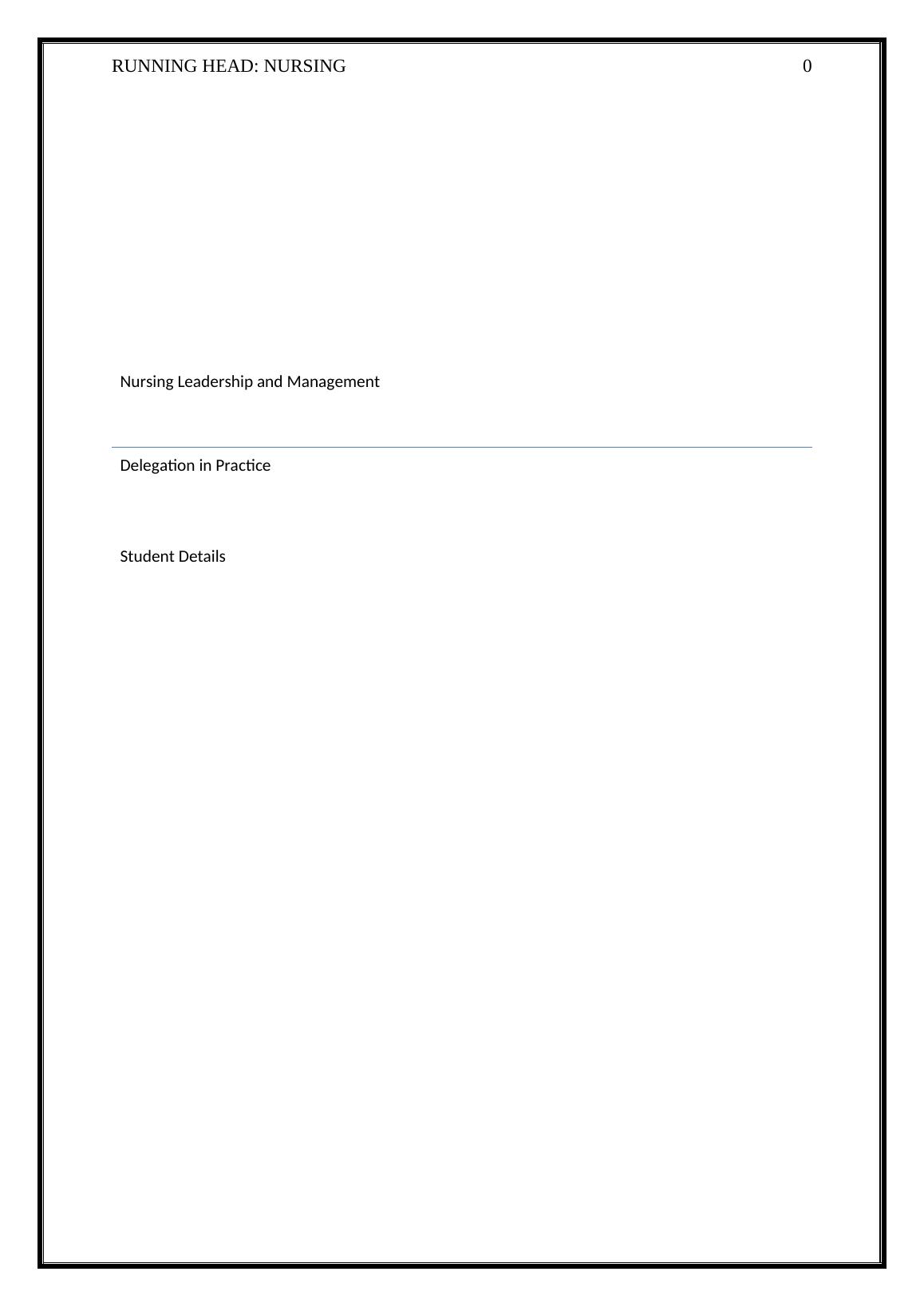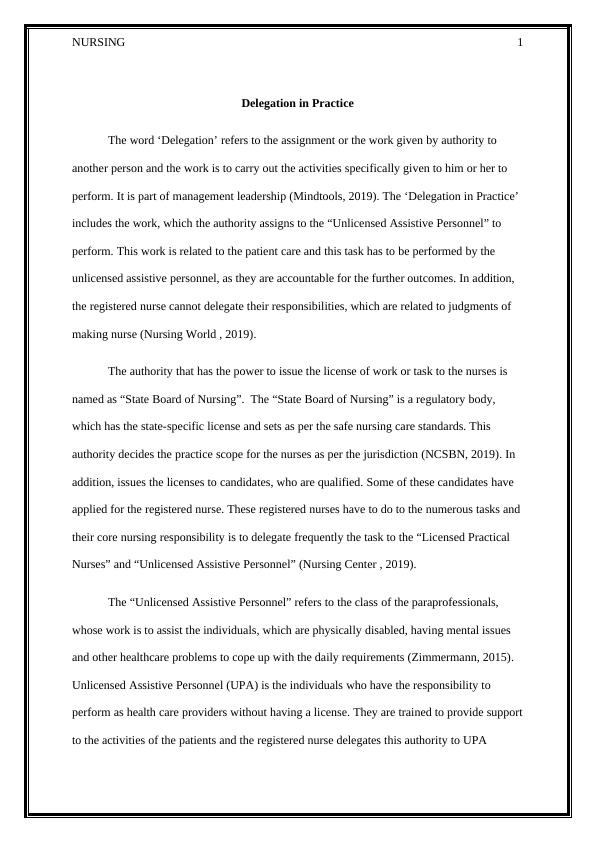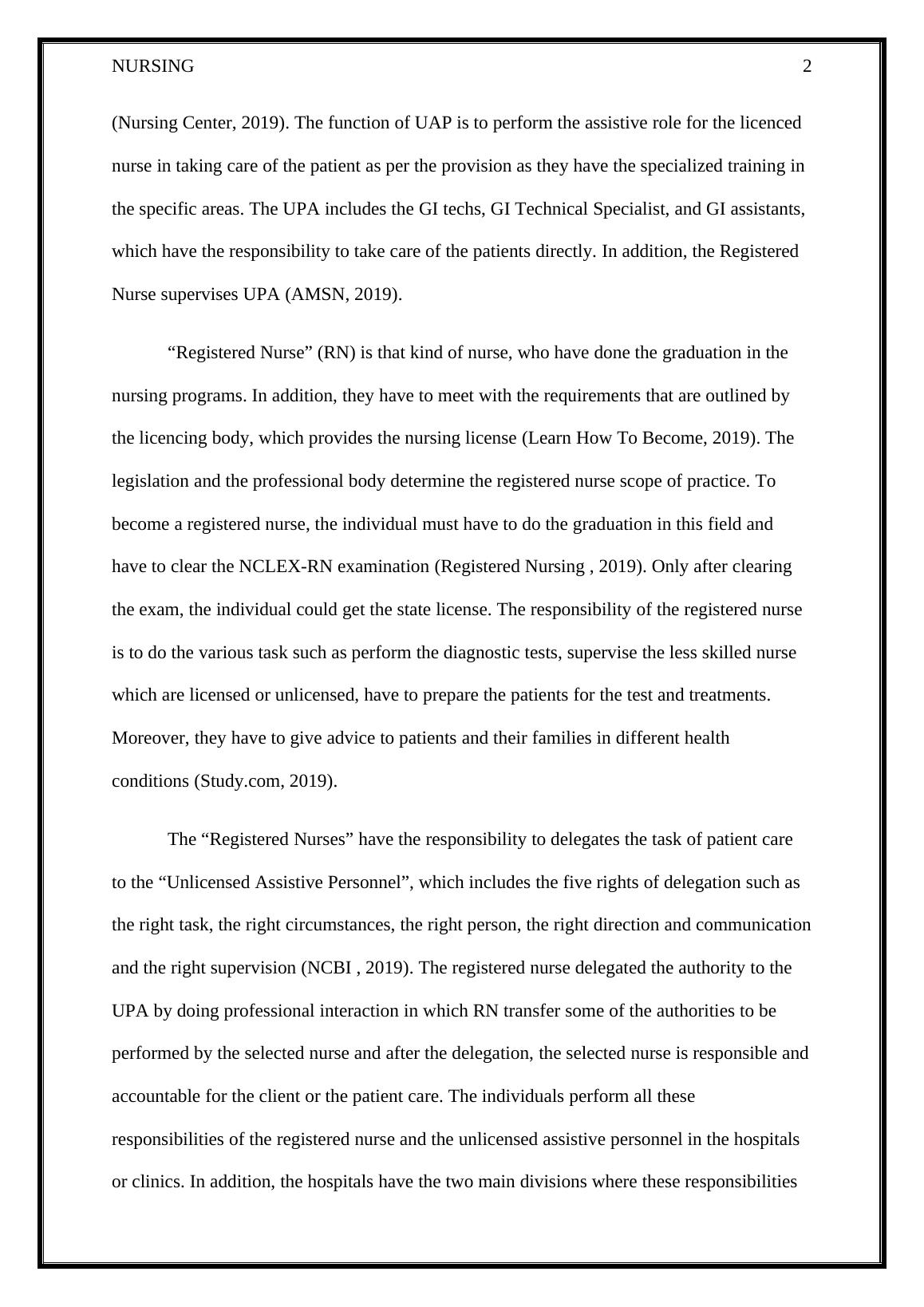Delegation in Practice
7 Pages1624 Words306 Views
Added on 2022-12-28
About This Document
This article discusses the concept of delegation in nursing leadership and management. It explores the role of unlicensed assistive personnel (UPA) and registered nurses (RN) in patient care. The article also highlights the importance of delegation in reducing the workload of RNs and ensuring quality patient care.
Delegation in Practice
Added on 2022-12-28
ShareRelated Documents
End of preview
Want to access all the pages? Upload your documents or become a member.
Delegation in Practice
|5
|1345
|465
Leading and Learning: Building Professional Capacity
|6
|1554
|73
Nurse Practice Act: A Guide to Nursing Actions and Standards
|14
|1357
|77
NURSING. Nursing Name of the student: Name of the Unive
|4
|432
|40
NUR3020 Delegation by Registered Nurses Report
|15
|3701
|179
Effective Communication During Delegation
|10
|2693
|37



